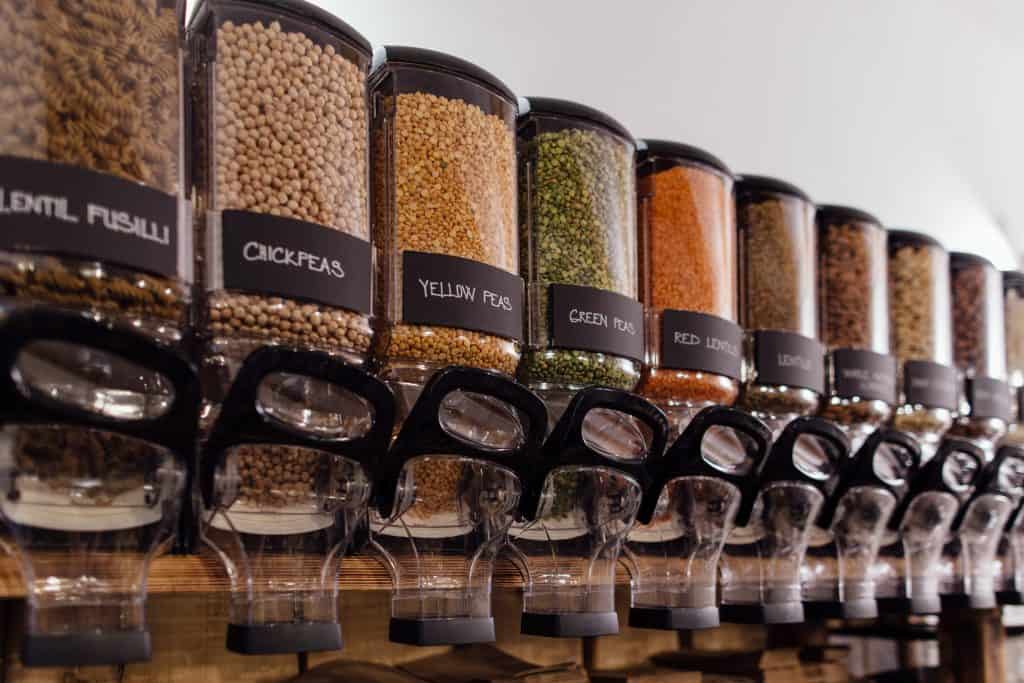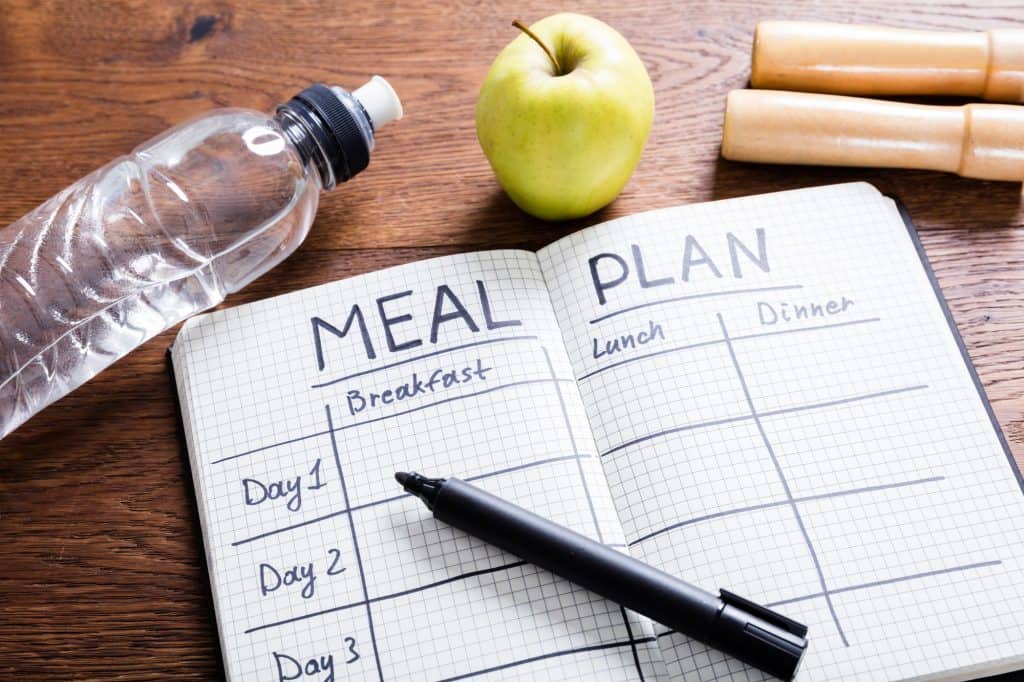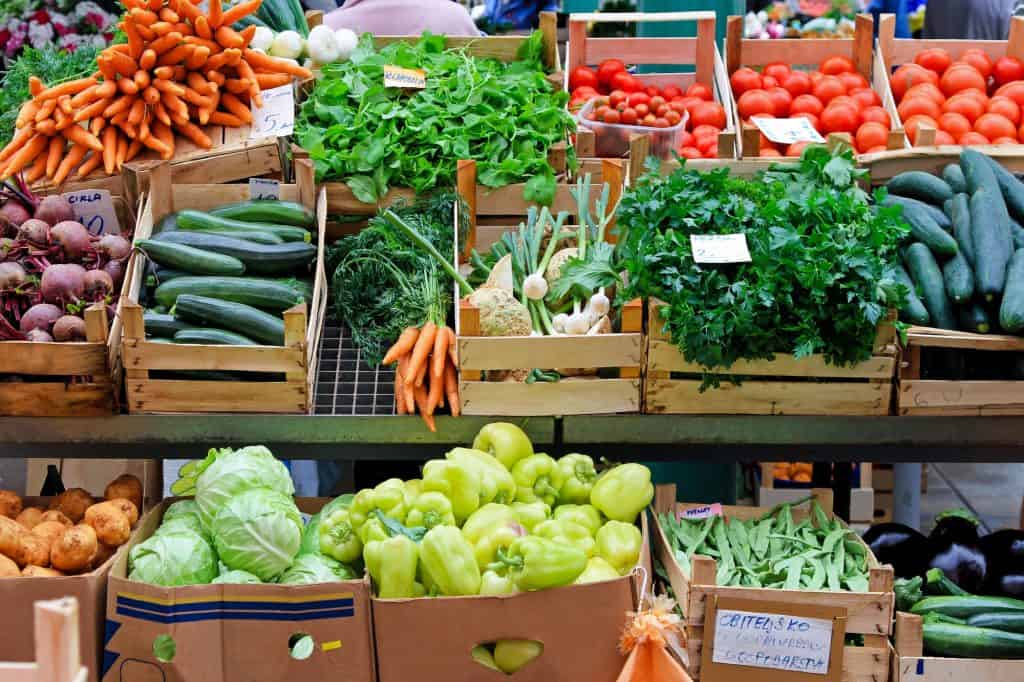
If you are trying to maximize your income, preparing meals are home will be your most cost-efficient way of eating. Not only does cooking at home save money, it is often healthier because the portions eaten are smaller.
But even shopping for groceries can be expensive, especially if you have poor shopping habits.
Shopping for groceries is something that almost everyone does at least a few times a month.
If you follow these simple tips for saving money on groceries, you can save up to $500 or more a month just by making a few small changes in the way you shop for food.
This post may contain affiliate links. Please read our disclosure policies for more details.
1. Buy in Bulk

Many items have a smaller unit cost when you buy it larger quantities. A 24 pack of toilet paper will cost less per roll than a 12 cost per roll.
It is important to make sure you have the space for things that you buy in bulk and it must make sense to buy in large quantities. No one needs a ten-year supply of anything.
2. Buy Only What You Need
Some foods are perishable and if you buy more than you can eat while it is fresh, all the savings you realized could be negated if you are throwing away spoiled food.
You should be able to use everything you buy in a meal or a snack. Items that have a shelf life should be bought to be used during their shelf life period.
3. Do Meal Planning

Planning your meals is the best way to stretch your grocery dollar. Plan for a 2-week period of meals and make enough that you can have 2 meals of each dish.
You can freeze one or have it later in the week. Now that you have a complete list of what you are going to eat, you can break it down to ingredients for emails into a simple shopping list.
4. Shop with a List
Once you have created a shopping list, you should be able to do your shopping in a minimal amount of time each week. Shopping with a list is the best way to avoid unplanned purchases.
5. Shop Online and Pick Up at the Store
Save time and money by shopping online and picking your groceries up while you are out running other errands or on your way home from work. Doing this will further minimize the chances of unplanned purchases.
6. Buy “in season” Fruits and Vegetables

Have you ever noticed that produce items are more expensive at certain times of the year? That is because they are in season and are more plentiful making them less expensive.
Florida has a season for strawberries, blueberries and citrus fruit. They can be almost twice as expensive during the off-season.
7. Freeze or Can Foods
Want to enjoy local fruits and vegetables all year round without paying off-season prices? Learn to can and freeze these foods so they can be enjoyed at other times of the year.
8. Use Coupons
Coupons have gotten much easier than in years past. Most of them can be downloaded to your phone and scanned. Good old paper is still available also. There are many options available for saving money with coupons and apps.

9. Make a Budget and Pay Cash
Make a plan that includes how much you want to spend on groceries and take that amount of cash to the store.
When you have reached the cash limit, your spending is done. Have the cashier scan your “must have” items first and reserve “want” items until you know you have the cash to cover them.
Buying online can be a great way to stick to a budget also.
10. Buy Generic or Store Brands
In many cases, these store brands are made with the exact same ingredients as the more expensive name brands.
11. Cut Back on Meat Purchases
If you can reduce the amount of meat you purchase, you will see your grocery bill go down. Make sure you use every ounce of meat and seafood purchases.
There are many dishes that can be prepared with a small amount of ingredients. If you made a chicken meal using a whole cut up chicken, make chicken salad or a chicken casserole with the breast and leg that did not get eaten.
12. Eat Your Leftovers

Eating all the food you purchased can go a long way towards giving you extra money. If you can get 2 or 3 extra lunches a week out of what you already have, it can add up to several hundred extra dollars a year.
13. Check the Unit Price when Shopping
Almost all grocery stores have a tag on their shelves that list the unit price of what is being purchased. Just because a package contains a large quantity does not necessarily make it a better deal. Check before you buy to make sure you are getting the best deal.
14. Limit the Amount of Convenience Foods
Anything that is quicker and easier will generally cost more money. Frozen, prepackaged meals and precut vegetables and fruit will cost you more than buying the ingredients and preparing the meal.
How to Save $10,000 in a Year
How to Stop Living From Paycheck to Paycheck
10 Online Businesses You Can Create In Less Than A Week
Or buying whole fruits and vegetables and cutting them yourself. Convenience costs, but it is still less expensive than eating out.
15. Shop at Less Expensive Grocery Stores
Where I live it is widely known that shopping at Walmart or Aldi will cost you less than shopping at some of the other grocery stores.
While discount stores may not always have as big a selection, they are able to save you money by stocking only things that move off the shelves.
16. Plant a Garden

Who doesn’t love fresh, homegrown foods? It tastes so much better if it is grown locally. You do not need a large amount of space to grow a few tomatoes, peppers and herbs.
Just having a small garden to can save you money. Want to really save? Grow a large garden and freeze or can the harvest to enjoy throughout the year. Gardening is a great way to have organic food on a budget.
17. Use Savings Apps
There are many apps that can help you maximize your spending. You may not necessarily save money on groceries, but you can accumulate points.
Points can often be cashed in for gift card, merchandise, money or other rewards. Ibotta, Swagbucks and Checkout51….are some of the best apps for accumulating rewards and saving money.
Conclusion – Ways to Save Money on Groceries
Outside of paying your mortgage, buying groceries can be one of the biggest expenses you will have each month.
Keeping your grocery bill under control can be challenging especially if “spenders” get involved in the food shopping.
Even if you practice just tip #3 and #4, you should be able to save yourself $200 – $500 each month.
Saving money on groceries is just one of the ways that you can make your hard-earned dollar go farther.



